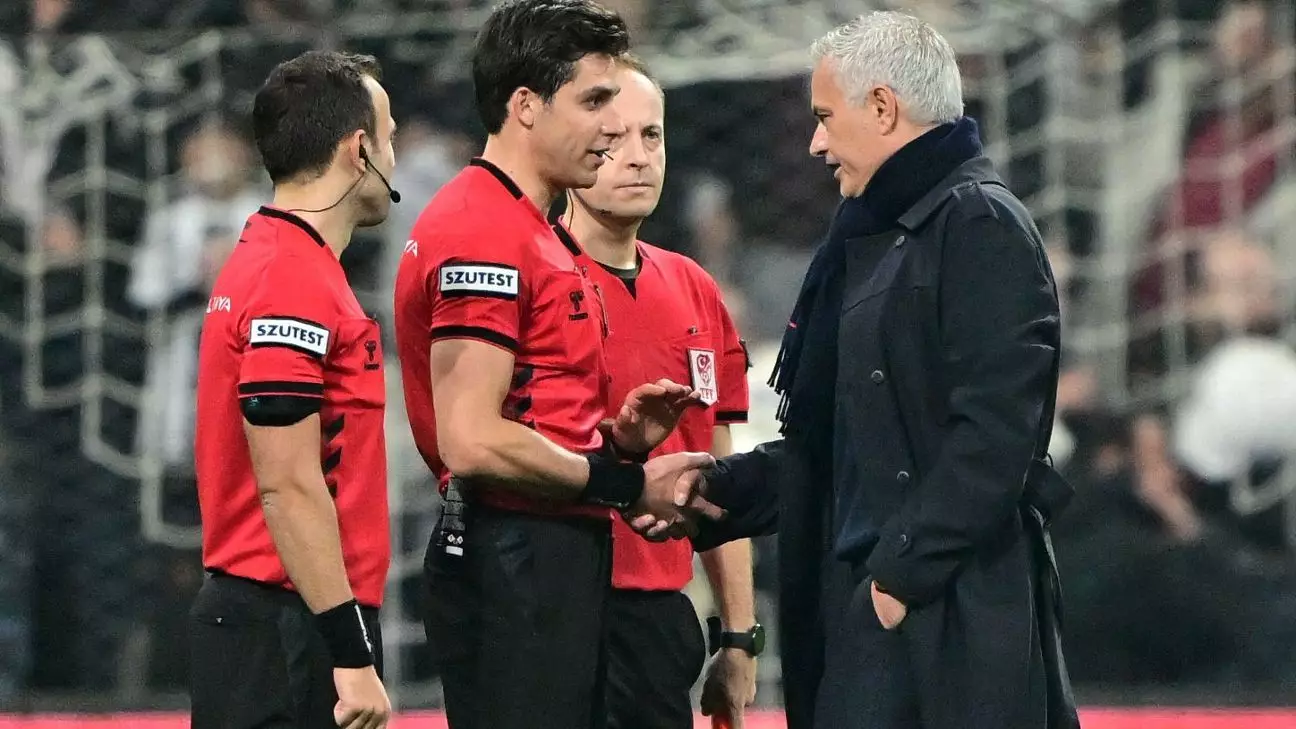In a world where post-match interviews are ripe with excuses and finger-pointing, Fenerbahce’s head coach Jose Mourinho stands apart with his unconventional reaction following his team’s narrow 1-0 loss to rivals Besiktas. The defeat marked Fenerbahce’s second derby setback of the season, breaking a five-game winning streak. Yet instead of lamenting his team’s performance or the controversial calls, Mourinho chose to shower praise upon the referee, Mehmet Türkmen.
Such behavior is increasingly rare in sports where tensions are high and victory is paramount. Mourinho’s commendation of the official reflects a significant departure from the norm, especially given his history of harsh critiques of match referees. “If we have referees like this one in every match of the title contenders, the championship will be a beautiful championship,” Mourinho remarked, extolling the virtues of fair officiating and its role in a respectable competition.
This philosophy is a testament to Mourinho’s evolving perspective on football and its surrounding culture. He acknowledges that referees often lack support and recognition, especially after contentious matches. His decision to congratulate the referee not only highlights his professionalism but also sets a precedent for others to follow. Conducting himself in such a manner positions Mourinho as a leader not just on the field but in the broader context of sportsmanship.
He further stated, “We lost just because it’s football. I didn’t see anything wrong.” This statement underscores his acceptance of the unpredictability inherent in the sport. Football is not just about winning; it is a complex interplay of skill, strategy, and sometimes, sheer luck. Mourinho’s honesty resonates with fans and players alike, reinforcing the idea that every game has its unique narrative and outcome.
Despite the disappointment of the derby loss, Mourinho remains steadfast in his mission to lead Fenerbahce to their first Super Lig title in ten years. The defeat leaves the team five points behind their giants, Galatasaray, but Mourinho maintains an optimistic stance regarding the championship pursuit. “We think we can win,” he affirmatively stated, signaling unwavering belief in his squad’s abilities.
Understanding the emotional landscape of supporters, Mourinho implores Fenerbahce fans to reflect on the match from an objective perspective, suggesting they would recognize the team’s potential and efforts. His empathetic acknowledgment of the fans’ passion shows that he values the relationship between the team and its supporters. “There is a long way to go,” he reassured them, placing emphasis on the notion that the season still holds much promise.
Fenerbahce’s journey isn’t just marked by rivalries and losses; it’s also about resilience and potential. With a Europa League fixture against Athletic Club looming, the team’s resolve will soon be tested again. Mourinho’s statements and actions post-defeat encapsulate key lessons in humility, respect, and the unwavering spirit required to push through adversity.
In a sport often marred by negativity, Mourinho’s graciousness serves as a refreshing reminder of what sportsmanship can embody. By fostering an environment of mutual respect among players, coaches, and officials, he sets an example that extends beyond Fenerbahce and into the essence of football itself.

